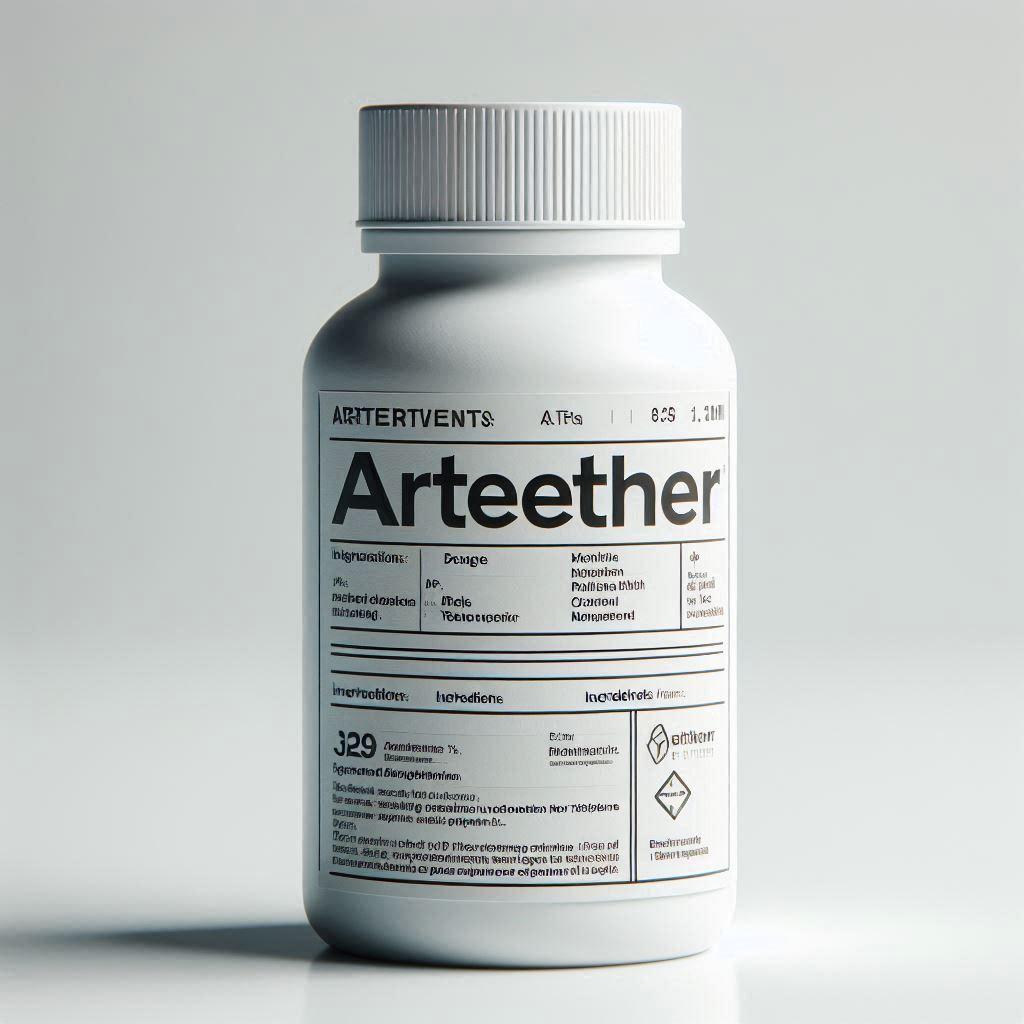
Arteether is an effective antimalarial drug used to treat severe malaria. It provides a fast-acting solution, especially in areas with resistance to other treatments.
Medicine Name: Arteether

ARTESUNATE-Artesunate: Use Dose Side effects contraindications
CHLOROQUINE: Indications & Use, Dosage, and Mechanism of Action
Description:
Arteether is a semi-synthetic derivative of artemisinin, used primarily as an antimalarial drug. It is administered intramuscularly for the treatment of severe malaria caused by Plasmodium falciparum. It is effective due to its rapid schizonticidal action, targeting the parasite during the blood stage of infection.
Indications & Use:
Arteether is indicated for the treatment of severe Plasmodium falciparum malaria, particularly in cases where the patient cannot tolerate oral treatment. It is especially recommended in areas where there is resistance to other antimalarial drugs like chloroquine or sulfadoxine-pyrimethamine.
Dosage:
- Adults: The recommended dosage for adults is 150 mg per day, administered intramuscularly for three consecutive days.
- Pediatric Dosage: For children, the dosage is usually 3 mg/kg body weight per day, administered for three days.
- The dosage may vary based on the severity of the infection and the patient’s overall health status.
Mechanism of Action:
Arteether works by generating free radicals when exposed to the iron inside the parasite’s food vacuole. These radicals cause extensive damage to the parasite’s membranes and proteins, leading to its death. Arteether is active against the asexual erythrocytic stages of Plasmodium falciparum, which are responsible for the clinical manifestations of malaria.
Side Effects:
Common side effects include:
- Nausea
- Vomiting
- Dizziness
- Fever
- Injection site reactions (pain, swelling)
Serious but rare side effects include:
- Neurotoxicity
- Cardiovascular effects (such as prolonged QT interval)
Contraindications:
Arteether is contraindicated in:
- Patients with a known hypersensitivity to artemisinin derivatives.
- Pregnant women, particularly during the first trimester, unless no alternative treatment is available.
- Patients with severe hepatic or renal impairment.
Drug Interactions:
- Antimalarial drugs: Concurrent use of other antimalarial drugs should be carefully monitored to avoid additive toxicity.
- Drugs affecting QT interval: Arteether can prolong the QT interval, so it should be used cautiously with drugs that have similar effects, such as quinolones or certain antipsychotics.
- Immunosuppressants: Co-administration with drugs like cyclosporine may increase the risk of immunosuppression.
Precautions:
- Monitoring: Patients should be closely monitored for any signs of neurotoxicity, especially during prolonged treatment.
- Liver Function: Arteether should be used cautiously in patients with liver dysfunction as the drug is metabolized in the liver.
- Pregnancy and Breastfeeding: Arteether should be avoided in the first trimester of pregnancy unless absolutely necessary. It is unclear whether the drug is excreted in breast milk, so caution is advised during lactation.
Patient Counseling Information:
- Compliance: Ensure patients complete the full course of treatment, even if they feel better, to prevent relapse or resistance.
- Side effects: Inform patients about possible side effects like dizziness or nausea, and advise them to seek medical attention if they experience serious symptoms such as persistent vomiting or cardiac irregularities.
- Avoid Self-medication: Patients should not attempt to self-medicate with antimalarial drugs and should only use Arteether under strict medical supervision.
Conclusion:
Arteether is a highly effective treatment for severe Plasmodium falciparum malaria, particularly in areas with drug-resistant strains. Its rapid action and efficacy make it a critical part of malaria management, but its use requires careful monitoring due to potential neurotoxicity and interactions with other medications.
References:
- White NJ. Antimalarial drug resistance. J Clin Invest. 2004;113(8):1084–1092.
- WHO. Guidelines for the treatment of malaria. 3rd ed. Geneva: World Health Organization; 2015.
- Dondorp AM, et al. Artesunate versus quinine in the treatment of severe falciparum malaria in African children. Lancet. 2010;376(9753):1647–1657.
Example:
A 45-year-old male diagnosed with severe Plasmodium falciparum malaria in a region with chloroquine resistance was treated with intramuscular Arteether for three consecutive days. His condition improved rapidly, and he was discharged after five days with no complications.
Disclaimer:
This article is intended for educational purposes only and should not be considered medical advice. Always consult a healthcare professional before starting any medication.
This post follows the RANK method by organizing the content in a logical, detailed, and reader-friendly manner, ensuring all essential aspects of Arteether are covered.






